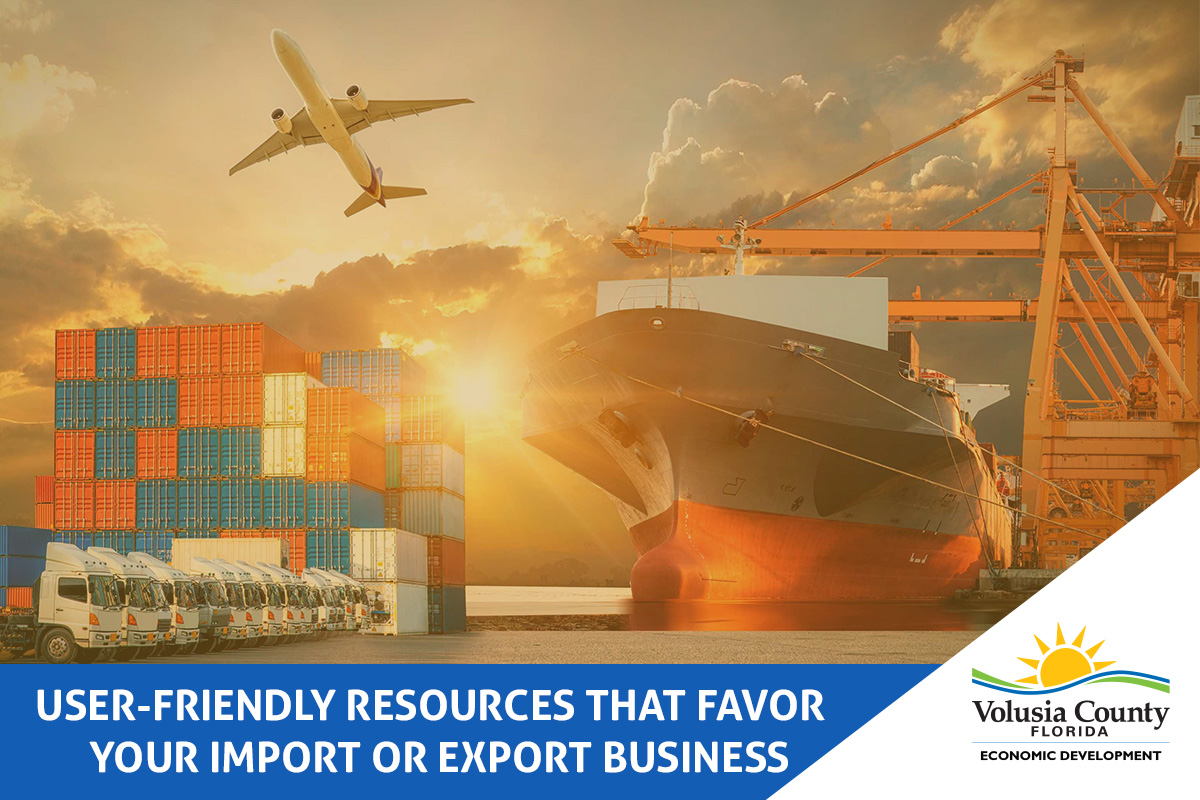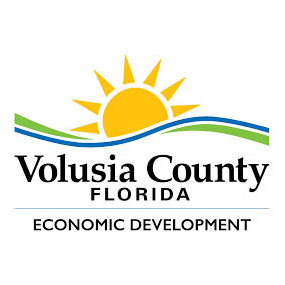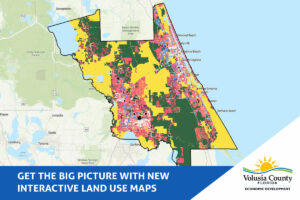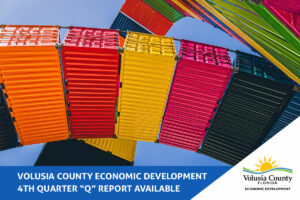Foreign-Trade Zone (FTZ) No. 198 – User-friendly Resources that Favor Your Import or Export Business

Exports are a central part of America’s economic growth. According the Small Business Administration (SBA), 97% of all exporters are small businesses and more than two-thirds of exporters have fewer than 20 employees.
Every day more small businesses are joining mega-companies by entering into the global market buying offshore suppliers and selling products directly to customers in export territories and marketing them through local distributors. Those who are engaged in global commerce know the added complexity and cost can make it difficult to compete.
Inclusion in Volusia County’s Foreign Trade Zone No. 198 (FTZ) can help your company be more competitive in the international marketplace. Now, thanks to approval of a framework change, Volusia County’s FTZ is more user friendly.
In 2017, county officials applied to the National FTZ Board for a reclassification of FTZ No. 198 from a Traditional Site Framework (TSF) to an Alternative Site Framework (ASF). This means manufacturers can establish themselves as a usage-driven site allowing the company to operate under FTZ status while remaining physically located outside of the general purpose zone within 60 miles of the designated port of entry and still take advantage of the variety of benefits including:
- Duty deferral – When merchandise is in an FTZ, customs duties and federal excise taxes may be deferred until the goods exit the FTZ and enter the territory of U.S. Customs. There are no time limits for how long merchandise can remain in the FTZ, giving businesses flexibility in paying the required taxes and duties.
- Duty exemption – Goods destroyed within the FTZ are exempt from duties and quota charges on re-exports, so companies with fragile merchandise or processes that generate significant amounts of scrap can benefit from using a FTZ.
- Duty reduction – Final products that are manufactured or otherwise processed in the FTZ may be subject to a lower duty rate than it would have in its original condition. Labor, overhead and profit from FTZ production are also exempt from duty charges.
- Merchandise Processing Fee (MPF) reduction – Companies pay an MPF on goods entering U.S. Customs territory. FTZ users may submit a single entry for all merchandise shipped from the zone within a seven-day period instead of submitting a single file for each individual shipment, helping reduce costs. Streamlining entry filings can also result in reduced brokerage fees.
- Quota avoidance – Imports subject to quotas can be held in an FTZ if the quota for that item has already been reached for the given year, allowing zone users to admit the merchandise once the new quota year begins. FTZ users may also be able to alter or manipulate the merchandise into a category that is not subject to the same quotas as the original product.
- Additional benefits – Streamlined logistics in FTZs can lead to enhanced inventory control, stronger security and improved compliance with Customs and Border Protection requirements and translate into lower insurance and transportation costs for U.S. companies.
A variety of activities can be conducted at a usage-driven site, including assembling, labeling, storing and preparation for distribution. So, companies that manufacture products that heavily utilize imported components may find the FTZ program a viable option to reduce costs and be more competitive in the market.
For more information on Volusia County Foreign Trade Zone No. 198, visit www.floridabusiness.org/business-resources/ftz.stml or contact Volusia County Economic Development Business Manager Katrina Friel at kfriel@volusia.org or 386-248-8048.









